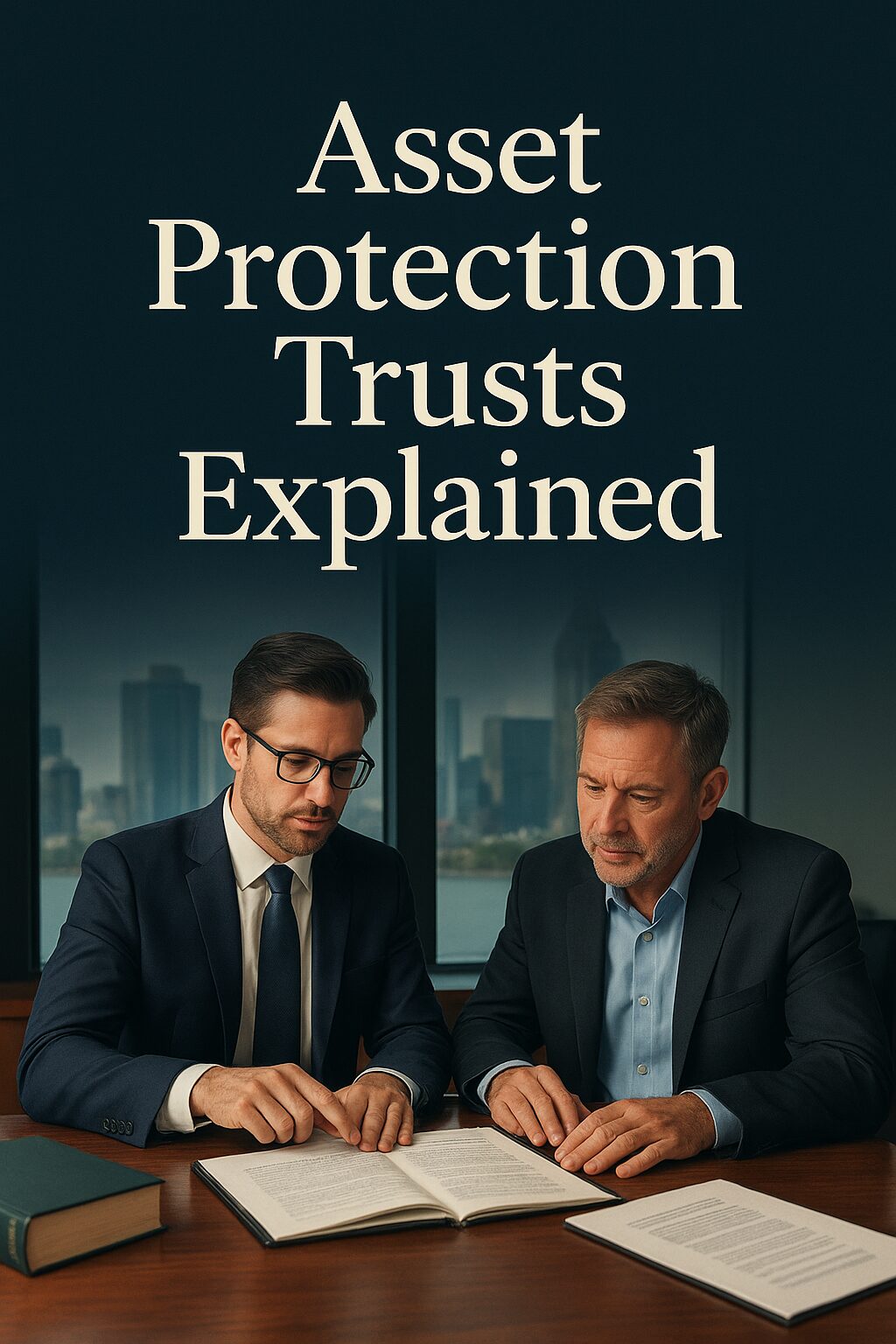Why Asset Protection Matters
In today’s litigious society, even the most careful individuals face risks from lawsuits, creditors, and unforeseen legal disputes. For high-net-worth Americans, the stakes are even higher. Years of wealth-building can be undone by a single judgment. Asset protection trusts (APTs) offer a legal, strategic way to shield assets from these threats while maintaining financial control.
This article explores how APTs work, the best jurisdictions for them, and how to structure one in compliance with U.S. laws.
What Is an Asset Protection Trust?
An Asset Protection Trust is a legally binding trust designed to safeguard your assets from future creditors and lawsuits. The key is that the assets are no longer held in your name but in the trust, managed by an independent trustee.
Core features:
- Irrevocable Structure – Once assets are transferred, they cannot be reclaimed at will.
- Discretionary Distributions – Trustee controls when and how beneficiaries receive distributions.
- Jurisdiction Advantage – Placing the trust in favorable locations strengthens protection.
Domestic vs. Offshore Asset Protection Trusts
Domestic APTs
- Established within the United States.
- Examples: Nevada, South Dakota, Alaska.
- Pros: Familiar legal system, easier access.
- Cons: Still under U.S. court jurisdiction, potentially weaker protection.
Offshore APTs
- Established in jurisdictions outside U.S. territory.
- Examples: Cook Islands, Nevis, Belize.
- Pros: Stronger legal protections, more difficult for creditors to penetrate.
- Cons: Requires careful compliance with U.S. tax and reporting laws.
Benefits of Asset Protection Trusts
1. Lawsuit Shield
If someone sues you, assets in an APT are generally out of reach, provided the trust was established before the claim arose.
2. Creditor Protection
Judgments, bankruptcy claims, and other creditor actions are significantly harder to enforce against offshore-held assets.
3. Estate Planning Integration
APTs can be structured to pass assets to heirs efficiently, reducing estate taxes.
4. Privacy
Many offshore jurisdictions provide confidentiality, keeping asset holdings private.
How an Offshore APT Works – Example Scenario
John, a U.S. entrepreneur with $10 million in assets, sets up an offshore APT in the Cook Islands:
- Transfers $5 million in investments to the trust.
- The trust is managed by an independent trustee in the Cook Islands.
- A U.S. court judgment has no automatic authority in the Cook Islands, forcing creditors to re-litigate under local laws, where the statutes heavily favor the trust’s protection.
Result: John retains access to income from the trust while shielding the principal from claims.
Best Jurisdictions for Offshore APTs
- Cook Islands – Pioneer in APT laws, strong asset protection.
- Nevis – Quick setup, creditor must post bond to sue.
- Belize – Confidentiality and low maintenance costs.
- Cayman Islands – Political stability and high-level legal expertise.
Legal Compliance for U.S. Citizens
While APTs can protect assets, they must comply with:
- IRS Reporting – File Form 3520 and 3520-A for foreign trusts.
- FBAR Requirements – If trust accounts exceed $10,000.
- FATCA – Declaration of foreign financial assets.
Failure to comply can result in substantial penalties.
Steps to Establish an Asset Protection Trust
- Consult an Attorney – Choose one experienced in offshore structures and U.S. compliance.
- Select Jurisdiction – Match your needs with the best legal environment.
- Transfer Assets – Complete before any legal claim arises.
- Appoint Trustee – Select a reputable, independent trustee.
- Maintain Records – Annual filings, trust deeds, and compliance documents.
Risks & Considerations
- Fraudulent Transfer Rules – Transfers made to avoid existing claims can be reversed.
- Costs – Offshore trusts require setup and maintenance fees.
- Loss of Direct Control – Trustee discretion is a key feature for legal protection.
FAQ – Asset Protection Trusts
Q1: Are APTs legal in the U.S.?
Yes, both domestic and offshore APTs are legal when properly structured.
Q2: Can an APT protect me from all lawsuits?
No structure is 100% bulletproof, but an APT greatly increases the difficulty for creditors.
Q3: How much wealth should I have before considering an APT?
Typically recommended for net worth above $1 million, especially with exposure to legal risks.
Conclusion
Asset Protection Trusts are one of the most effective legal tools for preserving wealth against lawsuits and creditor claims. For high-net-worth Americans, combining APTs with sound tax planning creates a powerful strategy for long-term financial security.
